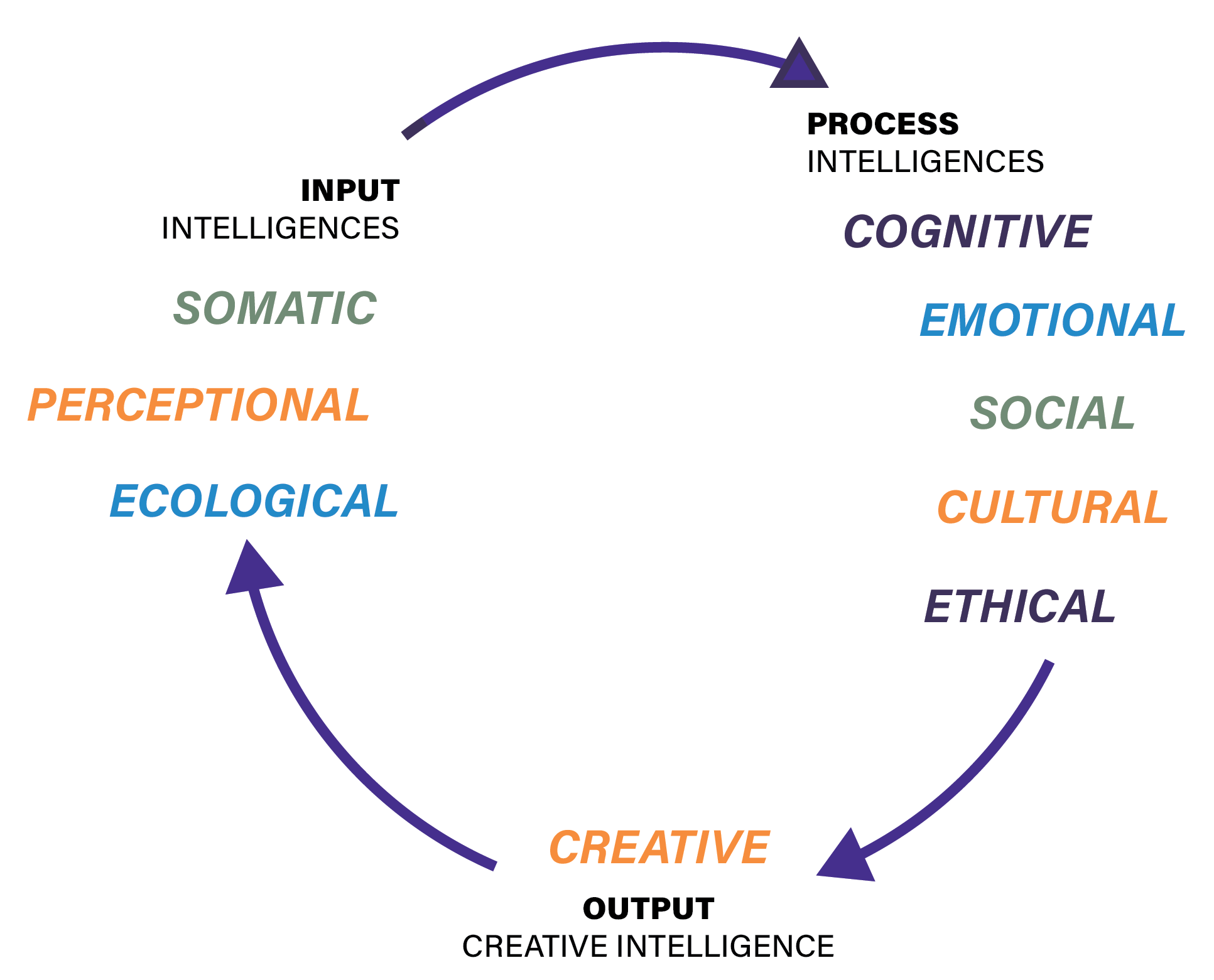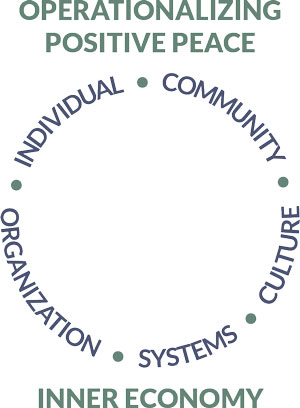What is Inner Economy?
Understanding Inner Economy

3-Stages & Nine Intelligences
"Developing a healthy Inner Economy helps us move into a system and culture of partnership, care, and interdependence."
Riane Eisler - World Renown Author, Cultural Historian, System Scientist,
and Founder of The Center for Partnership Studies
Inner Economy (IE) describes the inner resources one gains, uses, and loses in the exchanges of daily life; it is a lens through which to view the total well being of an individual, corporation, or community (Moen & Berkley, 2014).
The Inner Economy Model, on which the Institute for Inner Economy is built, identifies the interrelationship of nine intelligences—cognitive, emotional, social, cultural, ethical, creative, ecological, somatic, and spiritual/perceptional—that reflect a person’s internal state as expressed through their interaction with the outside world.
When the term is applied to the collective, it reflects the non-tangible inner workings of a community–the way people feel and interact within themselves, with other members of the community, and the community itself (i.e. local businesses, governance, school systems, healthcare, entertainment outlets and venues, spiritual organizations).
The healthier the inner economy, the more fulfilled the individuals are, which in turn leads to a vibrant and thriving community. This in turn, allows us to create a more secure world, one which is rooted in health, well-being, and partnership.

The Model
The Inner Economy model enables leaders, groups, and policymakers to interrupt ongoing cycles that keep unhealthy business, societal and systemic problems challenges alive and create a community in which the 8 pillars of Positive Peace thrive.
- We provide a framework and language for our clients to develop policy, content, and programs for societal change and re-creation.
- Our programs are custom tailored to diverse sectors: from policy, governance, national/international peace and security, city/community, and corporations.
- We educate policy makers and leaders on the key intelligences and how we, as individuals and as a collective, shape the world we live in through decisions, actions, behaviors, and policy making.
- Through a systematic and thoughtful process, our trainings help those who are ready to re-imagine their community or organization’s capacity to thrive.
- We help leaders balance and implement care based inclusive vision with fiscal responsibility.
